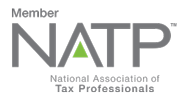“What’s your credit score?†For most consumers, the answer is simple –
almost everyone can find their personal credit score online. However,
small business owners need to build and monitor their credit as an
individual and for their business.
For small business owners, personal credit scores are vital. Until
you’ve built up a history with tax returns and balance sheets, lenders
and creditors will look at your personal score – it’s every bit as
important as your business credit score.
Small business owners also have a business credit score based on “trade
creditsâ€. Trade, or business credit, is the single largest source of
lending in the world.
Trade credit is extended by suppliers who let companies buy now and pay
later. Any time delivery is taken of materials, equipment or other
valuables without paying cash on the spot, you’re using trade credit.
Your business credit report is generated using your business name,
address and employer identification number (EIN), which you get from the
IRS.
Why keep them separate?
By creating a credit profile for your business, separate from your
personal profile, you may be able to access more credit than you could
as a consumer. On average, a business owner uses at least 10 times as
much credit as a consumer – important as you establish and expand your
business.
Besides the additional funds you can borrow, there are other reasons for
separating your credit profiles:
1. With a business lender, you’re contractually required to pay the loan
back. The clear rules and deadlines force you to use the money wisely.
2. If you don’t separate the two and your business goes under, you might
lose your personal savings.
3. If your business is sued, personal assets could be at risk.
4. Separate business credit makes it easier to identify business expense
deductions for tax purposes.
5. Separate business credit protects your personal credit scores.
Ways to keep business and personal credit scores separate:
1. Establish your business as a separate legal entity. This could be as
an LLC or S-Corp.
2. Set up a business checking account. This is an easy way to stay
organized and monitor cash flow.
3. Build a business credit history. Start by opening a business credit
card and always paying on time. Make sure that the card provider reports
to business credit bureaus and not to personal ones.
4. Open credit lines with your vendors and suppliers to build trade credit.



